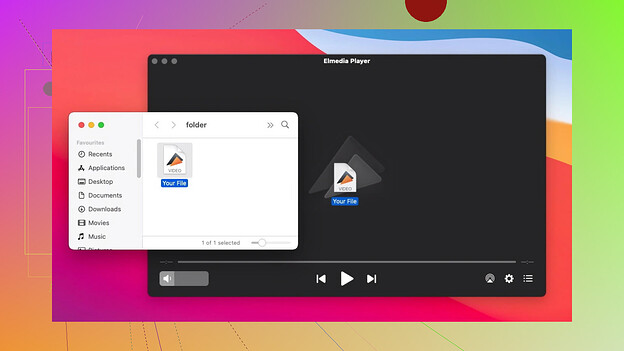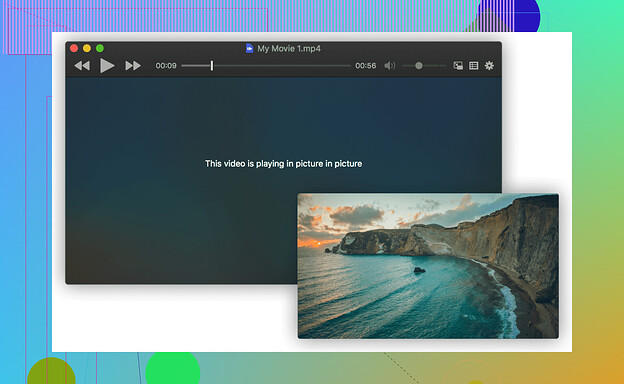I’m trying to understand if MKV files are completely lossless or if they lose data during compression or conversion. I’m editing some high-quality videos and want to preserve their original quality. Any clarification or insight would be great.
Exploring MKV: The Go-To Format For High-Quality Video Enthusiasts
When it comes to preserving the pristine quality of your video and audio files, MKV (Matroska Video) stands out as a fan favorite. Why? Because this robust format doesn’t just maintain the original quality—it supports lossless compression. That means you’re not sacrificing any detail or clarity even when the data is neatly compressed. As a result, MKV has conquered the world of high-definition video, being the format of choice for 720p, 1080p, and even higher-resolution viewing experiences.
Can Your Device Handle MKV?
If you’re diving into the world of MKV, chances are you’ve got a player or device in mind. Here’s the scoop: Windows users can breathe easy as the built-in codec ensures smooth playback straight out of the box. On the other hand, Apple enthusiasts—particularly MacBook users—might hit a slight roadblock. While macOS doesn’t offer native support for MKV files, it’s nothing a trusty third-party video player can’t solve. Below, we’ll walk you through two stellar options guaranteed to enhance your MKV experience on a Mac.
Player #1: Elmedia Player
First on the list is the sleek and reliable Elmedia Player. This media player comes packed with features that make it an excellent choice for MKV playback. Here’s what sets it apart:
- Seamless Performance: Thanks to hardware-accelerated decoding, Elmedia ensures smooth playback of even the most demanding, high-resolution videos.
- Audio Excellence: Multi-track audio support and a 10-band equalizer allow you to customize your audio journey.
- Subtitle Integration: The player has advanced options to sync and display subtitles for an effortless viewing experience.
- Organized Playlists: Managing multiple videos is a breeze, and you can enjoy continuous playback without interruptions.
- Wireless Streaming: Want to kick back and watch on the big screen? No problem. Elmedia supports streaming your local MKV files right to your TV.
This combination of features makes Elmedia a versatile and reliable companion for your video library.
Player #2: IINA – Modern, Minimal, Yet Mighty
Next up is IINA, a player designed exclusively for macOS. IINA takes a modern approach to media playback, coupling a stunning user interface with powerful performance capabilities. Here’s how it shines:
- All-Inclusive Compatibility: IINA handles virtually any MKV file, no matter the bitrate, number of audio tracks, or subtitle layers.
- Elevated Playback Options: Customize your viewing experience with playback controls, picture-in-picture mode, and subtitle management.
- Open-Source Power: Built as an open-source project, IINA is constantly being improved by a passionate community of developers.
- Exceptional Usability: Whether you’re watching high-bitrate 4K files or switching between episodes seamlessly, IINA doesn’t skip a beat.
IINA is the perfect blend of elegance and functionality, making it a strong contender for macOS users.
Wrapping Up
Whether you’re streaming on a TV or binging a crisp HD series on your MacBook, these two players will have you covered when it comes to MKV files. Elmedia leans into features like playlist organization and wireless streaming, while IINA delivers modern aesthetics and versatility. Either way, you’re in for a smooth, high-quality viewing experience.
Still have concerns about MKV playback? Don’t hesitate to ask—I’m always here to help out! ![]()
MKV is pretty awesome, but let’s clear the air about being ‘truly lossless.’ The key difference is that MKV isn’t a codec—it’s a container. What does that mean? It holds video, audio, subtitles, and metadata all in one nifty bundle. Whether it’s lossless or not depends on the codecs used within the MKV file. If the video is encoded with, say, H.264, there will be some data loss due to compression. However, if you’re using lossless codecs (like FFV1 or FLAC for audio), then it does indeed preserve the original quality.
If you’re editing videos, MKV is fantastic for storing high-quality attributes, but beware during conversion, especially with lossy codecs. Compression schemes might reduce quality depending on what software or settings you use. So, while MKV itself isn’t inherently lossless, it has the ability to store lossless streams if you set it up correctly.
On another note, @mikeappsreviewer pointed out great playback options, and I’ll add to that by hyping the intuitive Elmedia Player for Mac users. Perfect for MKV playback with zero fuss! For editing, though, make sure your editor can natively handle MKV to avoid unnecessary re-encoding or quality dips.
TL;DR – MKV can be lossless if you pack it with lossless codecs, but the container itself doesn’t magically ensure zero data loss.
MKV isn’t inherently ‘lossless’ in itself. It’s a container format, which means it can hold video, audio, subtitles, and more, but whether or not it holds lossless content depends on the codecs used inside it. For example, if you’re using a codec like H.264 or H.265 for the video, you’re dealing with lossy compression—no matter that shiny MKV tag. You lose some data, even if it’s hard to notice to the naked eye. But, if you wrap up a file encoded with a lossless codec like FFV1 for video or FLAC for audio, then yes, MKV can store lossless content.
That said, conversions are where things can take a wrong turn. If you’re opening, editing, or converting an MKV file in software that doesn’t fully support it, you risk having the program re-encode the file using lossy settings, kissing some more quality goodbye. Always ensure your editor supports direct MKV imports without forcing a conversion—otherwise, you’ll be downscaling your masterpiece.
@andarilhonoturno makes a solid point about packing it with lossless codecs, and I agree that while MKV is great for high-quality content, it doesn’t magically guarantee you’re not losing data. Meanwhile, @mikeappsreviewer gave some good playback options. To throw my 2 cents in, if you’re on macOS and looking for an effortless way to play MKV without codec headaches, consider trying this powerful Mac video player. Perfect playback and zero hassle clearly make it an essential tool for MKV enthusiasts.
So, bottom line: MKV can support lossless if set up right. Just don’t expect the container format alone to solve world hunger—or your quality woes—without understanding what’s packed inside.
While MKV is often celebrated as a lossless format, let’s be clear: MKV is a container, not a codec. Whether the content inside is lossless largely depends on the codecs used. If your MKV contains, say, an H.264 video, that’s lossy, no matter what. Replace it with something like FFV1 or audio encoded with FLAC, and the file can absolutely be lossless. So, don’t let the container name distract you—focus on what’s packed inside.
@andarilhonoturno made a solid point about codecs determining losslessness, and @chasseurdetoiles is right: editing or converting MKVs can be a quality minefield if the software forces re-encoding or uses lossy defaults. Direct import support is critical.
Now about @mikeappsreviewer’s playback recommendations for Mac users: Elmedia Player seems like a great pick if you’re dealing with high-resolution MKVs. It’s intuitive and has features like hardware-accelerated decoding, audio customization with a 10-band equalizer, and seamless subtitle handling. It plays high-bitrate files smoothly too. A downside? It’s primarily tailored for viewing, not editing, meaning you might need to juggle tools for your project.
Still, for playback on macOS, I’d stack Elmedia against IINA any day. While IINA has a modern, minimalistic interface and open-source appeal, some users might prefer Elmedia’s streaming features and playlist organizing. Both are fantastic options, though, depending on your use case.
To wrap up: MKV doesn’t promise losslessness—it’s the codecs and handling that do. Use FFmpeg or other tools that honor lossless encoding for your exports. And for playback, Elmedia Player deserves a try unless you’re all-in with IINA’s open-source vibe. Just be cautious during editing and conversions—lossless can’t survive poor software choices!

